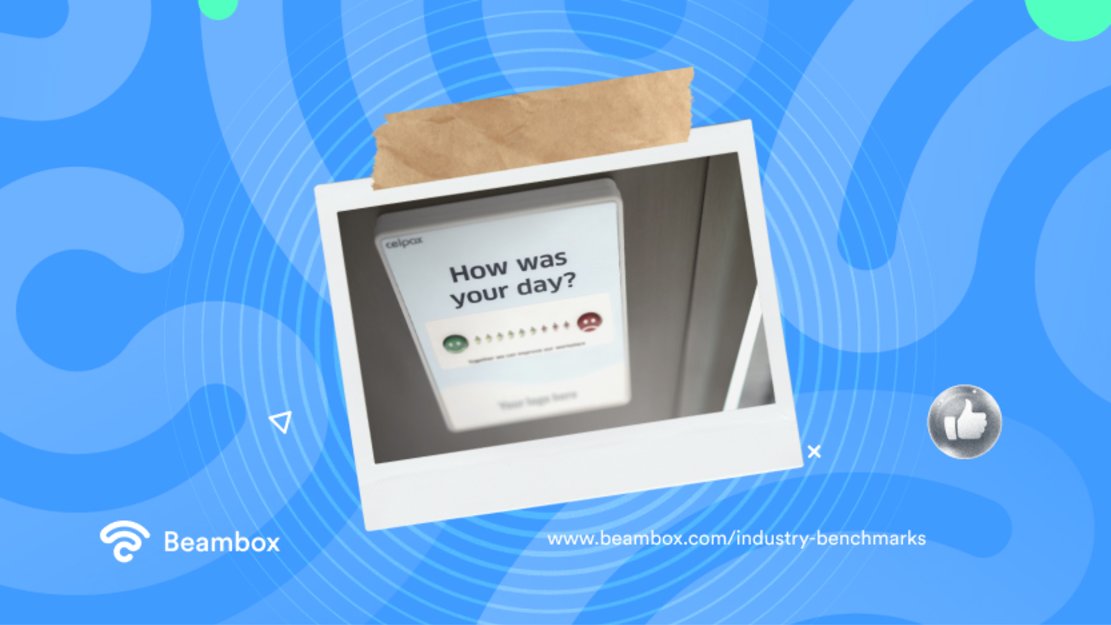Industry benchmarks are the ultimate measuring guidelines. When you run a business, you need to have some way of measuring success. You also need goals to aim for – ways of directing your efforts to keep motivation levels high. And this is where benchmarks come in. Benchmarks are different things that you measure to track success and create goals.
These could be anything from the average conversion rate of sales to the average click-through rate of marketing emails. It could also include things like foot traffic for restaurants or customer satisfaction ratings for hotels. Or even the number of clicks on Google Ads you get.
In this guide, we’ll teach you everything there is to know about utilizing benchmarks as key performance indicators. In the restaurant and hotel industry, having these benchmarks is absolutely essential. You can use benchmarks in every aspect of restaurant and hotel businesses, from social media benchmarks to customer satisfaction. Benchmarks are single-handedly one of the most effective tools for your business. So don’t waste any more time. Let’s start your learning journey today.

What Are Industry Benchmarks?
Industry benchmarks are different factors of running a business that measure and represent success. These stats and figures directly correlate with success and are valuable to track. For instance, measuring average foot traffic into a store or the number of sales conversions from an affiliate link.
You can adjust benchmarks to suit your business industry, like measuring the average click-through rate of emails for your hotel. A vital element of flexibility exists when using this essential performance indicator tool, shaping benchmarks to fit your business.
Using an industry benchmark also helps you to track your business’ progress against other competitors in your field. It can even improve budgeting and forecasting for your business, but we’ll go more into its benefits later.
To get a more simple idea of what precisely an industry benchmark is, let’s take a look at some examples. These are some typical examples of benchmarks in the hotel and restaurant industries:
This is how long the average customer stays at a table while visiting your restaurant. The goal is to serve as many tables as possible while allowing guests a decent length of ‘experience.’ It is a delicate balance, so you can see why it makes a good benchmark.
This benchmark works for the hotel and restaurant industry. It simply refers to the number of staff you lose in a given period. A lower turnover rate is desirable as it indicates a positive working environment and fewer resources spent on hiring.
- Revenue per available room/table
This is an easy benchmark to get your head around. It refers to the amount of revenue (money) that you make off of each available room or table. This is important when predicting profit and organizing things like staffing numbers and expenses.

Why Do You Need To Understand Benchmarks?
So, why on Earth do you actually need to understand industry benchmarks? In short, these benchmarks give your business the winning edge in your industry. Picture it like navigating a maze to find gold in the pitch black versus doing so in broad daylight. Benchmarks illuminate your journey to business success and help you reach your goals quicker. They give you purpose, direction, and valuable business feedback for success optimization.
There are so many reasons why benchmarking is essential. These are the top three reasons why you should absolutely dedicate yourself to understanding benchmarking:
- Benchmarks bring clarity and strategy
With benchmarks, you have clear goals to work towards. Without goals, it is easy to be ineffective – floundering, unsure of your next move. With goals, you can better strategize and execute practical actions to improve your business.
- Benchmarks allow you to compete in your industry
Benchmarks allow you to better compete with other businesses in your industry. Providing measurements that apply to all companies in your industry lets you compare and compete. This is brilliant for striving to be top in your respective industry.
- Benchmarks provide feedback
Whether you measure the average conversion rate or hashtags by engagement rate, benchmarks provide feedback. This feedback is precious in helping you to improve your business and offers constructive criticism. If you want to grow, high quality and objective feedback are like light and water for a plant.
In short, benchmarks are vital for progressing within your industry. You need to have a direction and clear purpose if you want to achieve business success. These three benefits best summarize the importance of benchmarks.
Learn about benchmarks and watch these three benefits come rolling in.

Top Restaurant Industry Benchmarks
Of course, since benchmarking itself is not an industry-specific practice, we’ll have to narrow things down ourselves. If you run a restaurant, you best believe that benchmarking will be helpful. But it can be hard to envision how to implement benchmarks initially. So to help you visualize a clearer benchmarking strategy, let’s look at the top restaurant industry benchmarks.
This benchmark is vital with a capital ‘V.’ If you don’t understand your inventory turnover ratio, you cannot correctly stock your inventory, which spells disaster. The inventory ratio is just how quickly you sell and refill your stock. You don’t want to over-buy, waste food, or run out of stock.
Knowing how much you make per guest is essential when forecasting your profit in the food industry. Knowing how many guests you have visited one evening, you should be able to calculate an average revenue. This will allow you to make crucial decisions like staffing numbers and have a general idea of profit.
As we mentioned before, knowing your staff turnover is essential. Restaurant employee turnover is notoriously high, sometimes reaching over 80% annually and risking around a 20% management turnover. High turnover indicates a poor working environment and high hiring spending and resource use. The lower you can get it, the better it is for your business. Many people foolishly overlook employee turnover rates and ratios - don’t make the same mistake.
This might seem like a strangely phrased benchmark. However, revenue per square foot is significant. It is an excellent measure of productivity and helps you understand how effectively you utilize floor space. With restaurants, you can factor in table numbers, bar space, restrooms, and storage space.

Top Hotel Industry Benchmarks
So, you know about restaurant benchmarks, but what about the top hotel industry benchmarks? How can you bring those same benchmarking powers to the hotel industry? The answer is easy. There’s an overlap between some benchmarks and also a few that belong specifically to the hotel industry. Check out these top hotel benchmarks:
This benchmark is so valuable. It tells you the average rate that guests occupy the rooms in your hotel. This benchmark reflects everything from profit to the effectiveness of your marketing and booking rate. If you will pick just one or two benchmarks for your hotel, make the occupancy rate one of them.
This is another hugely important benchmark, indicating how long your guests stay. This is useful for many reasons, including building customer profiles and understanding your target demographic. Are your guests stopping over for short weekend city breaks? Single nights before the airport? Or are your guests staying for weeks on extended family holidays? Understanding the average length of stay helps predict profit per booking and better target your guests with marketing endeavors.
As promised, this is the overlapping benchmark you can use in hotels and restaurants. Sales per square foot are brilliant for measuring productivity and effectively using layout and floor space. You can also boost it, like bar areas, vending machines, and increasing guest rooms.
Knowing your average daily rate – across the board and including all room types – is the best way to forecast profit. If you know the average you’ll make per booking, you can quickly get an idea of your profit. This is great for budgeting and staying on top of your finances as a hotel.

Finally, while this article focuses on industry benchmarks for hotels and restaurants, social media benchmarks play a considerable role. Social media is among the best marketing strategies and is always in play amongst successful brands and businesses. So, to keep on top of your social media marketing campaign, pay attention to these top benchmarks:
- The average click-through rate of Instagram stories
How many people actually view your Instagram stories? Followers versus story engagement is a different ball game, so this is a critical benchmark consideration. The more engaging your Instagram stories are, the higher your average click-through rate will be. It is a brilliant indicator of how well your Instagram stories connect with your audience.
- Social media platforms growth rate
The growth rate applies to everything from Instagram to TikTok and Facebook. It refers to how quickly, or if, your social media channel is growing in engagement. This could relate to post impressions, likes, or followers. Or the average conversion rate per post or Facebook ad. Selecting Facebook ads by industry is really important, so you use special targeting for interested customers.
Posting frequency is another top benchmark for social media. It helps you measure how much effort and time you put into social media marketing. And what better way to track and stay accountable? It is the best way to monitor your social media and provide the best marketing possible for hotels or restaurants.
Profile reach is how many accounts see your content. The wider your reach, the more likely your social media will grow. It also means your business advertisement is seen by more people, and so your marketing is more effective.
Social media is an essential part of marketing; incidentally, it also links to the 2023 hospitality trends. The trend indicates more customer-created content, meaning social media engagement is hugely important. Whether you run a hotel or restaurant, social media benchmarks are necessary.

Is Investing in Industry Benchmarks Worthwhile?
Investing in industry benchmarks is 100% worthwhile. You already know the main benefits of using benchmarks - including clearer strategies, better performance against competitors, and valuable feedback. Considering all of these benefits, there is no reason why you would not invest in benchmarking. And, since benchmarking often costs only time, it isn’t a drain on your budget. Our advice? Set aside an hour or two a week and watch benchmarking transform your business and success.
At Beambox, we passionately believe in the importance of performance analysis and good old objective stats and figures. Benchmarking especially works well in the hotel and restaurant industries, where ironically day-to-day consumer services can feel like mayhem. These two industries are industries that are perfect for benchmarks thanks to how measurable their services are.
However, unless you are purposeful, you’ll probably miss your opportunities as customers come and go so quickly. Hotels and restaurants are notoriously fast-paced, so don’t miss out on this valuable data. And once you have the basics under your belt, branch out to things like the spirit industry and drinks marketing.
Do you want some extra help with utilizing performance indicators like industry benchmarks? At Beambox, we are always happy to assist you with marketing and boosting your business. As experts in WiFi marketing and benchmarking, we can help to propel you toward success.
With experts in your corner, you’ll be able to almost taste the success of your consumer services. Let’s give your hotel or restaurant the best possible chance to succeed with typical industry benchmark use.
Beambox offers the best all-in-one WiFi marketing platform. We utilize a dynamic approach to connect, attract, and retain customers. Start your Beambox free trial today, and let us help you maximize your benchmarking potential.

Get Started With Free WiFi Marketing
Beambox helps businesses like yours grow with data capture, marketing automation and reputation management.
Sign up for 30 days free